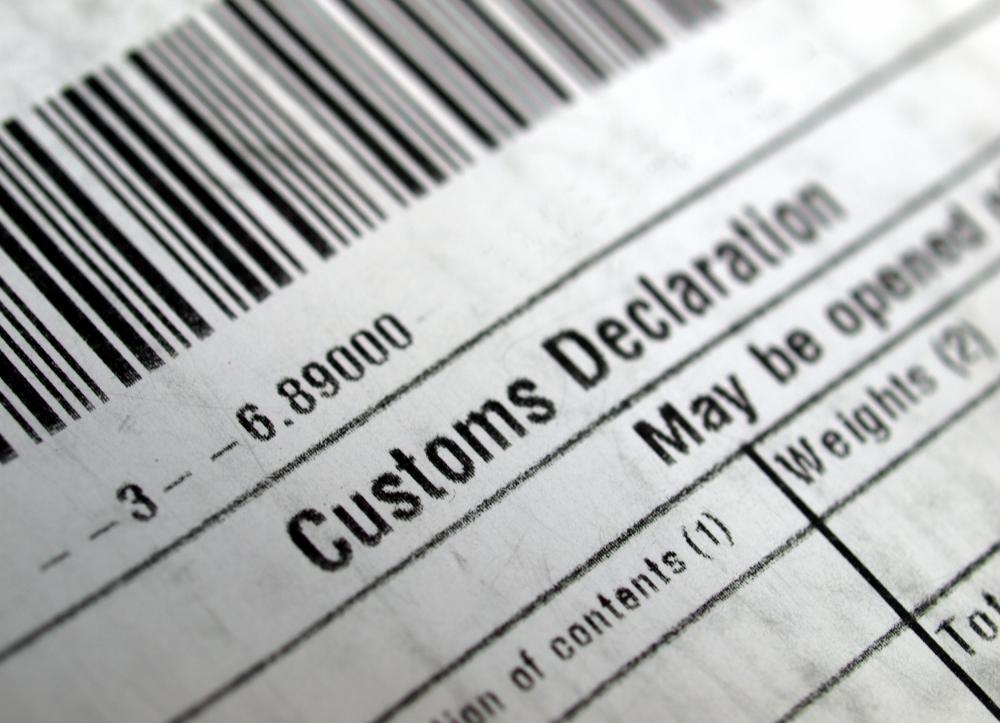At WiseGEEK, we're committed to delivering accurate, trustworthy information. Our expert-authored content is rigorously fact-checked and sourced from credible authorities. Discover how we uphold the highest standards in providing you with reliable knowledge.
What Are the Differences between Domestic and International Trade?
While there are a number of similarities between domestic and international trade, there are also several significant differences. These differences often have to do with how the goods are moved between the buyer and seller, the imposition of tariffs and other charges, the type of insurance that must be secured as part of the business deal, and even how the buyer goes about paying for the goods and shipping. Knowing these differences can allow buyers and sellers to participate in the global trade of goods and services, a situation that provides additional opportunities for both parties.
One of the more apparent differences between domestic and international trade is the fact that domestic purchases and sales are not affected by the location of the buyer and seller to the degree that is true with international transactions. When the buyer and seller are located in the same nation, only trade regulations related to that one country will apply. By contrast, an international transaction would have to be conducted in a manner that is in compliance with the trade regulations that are in place for both countries involved. This requires that both the buyer and the seller be aware of those regulations and make sure the goods, the mode of shipping, and the documentation prepared is in line with those regulations. Failure to do so can lead to delays in delivery, and possibly lead to refusal by the receiving port to allow the goods to be unloaded.

Another key difference between international and domestic trade is that the type of fees and charges associated with the shipping process will also be different. Various tariffs and other fees are typically applied to shipments between countries, regardless of whether the mode of shipping is by travel over land, by sea, or by air. In contrast, the process of transporting a shipment between two points in the same country is much simpler in terms of the type of taxes, fees, and charges that are levied as part of the shipping process. Identifying and properly calculating all relevant taxes and charges is one of the more important aspects of understanding how domestic and international trade arrangements will differ.

Other differences between domestic and international trade are also common. Problems with the rate of exchange between the two currencies involved may require some planning to arrange, while the matter of currency is not a problem with domestic transactions. In like manner, language and cultural differences may also be of concern with an international transaction, but are much less likely to be a factor in a domestic one. While the processes used for international trading may be somewhat more complex than conducting a domestic transaction, professional shippers and agents can help buyers and sellers understand what needs to be done in order to successfully execute the transaction and arrange for shipment and delivery, while avoiding some of the pitfalls that could otherwise occur.
AS FEATURED ON:
AS FEATURED ON:












Discussion Comments
International trade is very difficult. My friend has a firm and he wants to do business in other countries but he's scared of fluctuating exchange rates and taxes.
When a firm is working in a domestic market, changes are more predictable and everyone plays by the same rules. But in other countries, business culture varies and it can take a long time to understand how things work. A sudden change in exchange rates or a new tax imposed by a foreign government can be detrimental for a company. Many people can't take the risk.
There is a domestic sales tax in the US that each state decides on. There are a few exemption of goods that the US government decides the sales tax for.
International trade involves tariffs and those are decided on by individual governments. But governments do consider several factors when deciding. For example, two countries may lower tariffs for one another as part of an agreement or the WTO might help two countries come to an agreement for tariff rates. If a country wants to protect a national industry, they may raise tariffs for those goods.
In the domestic market, if taxes for goods are not paid, there are monetary penalties for it. It's more difficult to impose trade rules in a global market. The WTO tries to do this to some degree with a common set of trade rules for its members. Members who break the rules can be penalized, but I doubt that the penalties are very deterrent.
Domestic trade involves taxes and international trade involves tariffs, right? Well, who decides on these and how are they imposed?
Post your comments